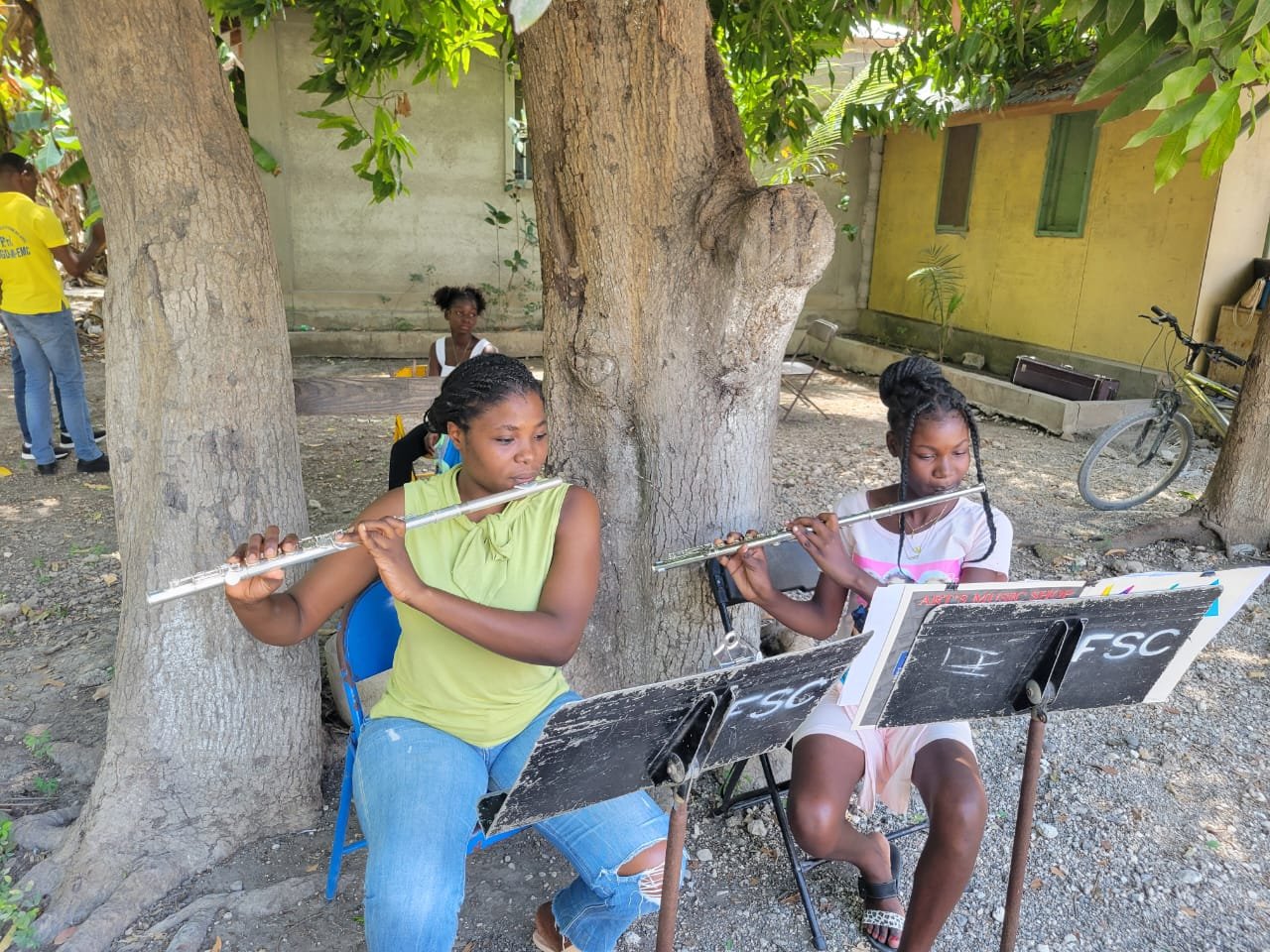The Music Will Play Again in Haiti
It is hard to imagine that only two and a half weeks ago, I was teaching students at the CEMUCHCA Institute of Music in Cap Haitian, having just returned from helping gifted young musicians in the small town of Marmelade in the Artibonite province prepare for their auditions for the Haitian Orchestra Program of Excellence – aptly named the HOPE Orchestra. At the same time, in early March BLUME Haiti had three Band Instrument Repair Seminars ongoing in the southern city of Jacmel.
As many of you are aware, while the situation in Port-au-Prince is indeed catastrophic, what goes virtually unreported by the news media is that elsewhere in the country, where we continue to do our work, things are functional and reasonably safe.
BLUME Haiti Instrument Repair Technician, Herold Jean Pierre, showing some finer points of saxophone repair to very attentive students - Jacmel, March, 2024
For more than a decade we have been partnering with music programs across Haiti, reaching thousands of children and young people. We teach not only music but also the self-confidence, leadership, teamwork, and critical thinking skills that learning music instills.
Today, I am back home stateside. While all of Haiti’s airports closed on March 5, emergency flights have started, timidly, in Cap Haitian. In fact, the airport in Cap was closed not because of scattered violence in the city but out of fear that the prime minister, who has said he will resign once a transitional council is put in place, might try to fly in and, in doing so, provoke an attack.
Fondation Sainte Cecile, just outside of Port-au-Prince - March 2024
That is not to say that places like Cap Haitian are unaffected by events in Port-au-Prince. BLUME Haiti normally runs an Orchestra Institute in Cap in March. Our collaborators in the Utah Symphony were unable to participate this year but we had hoped to establish a new orchestra program to continue offering an exceptional opportunity for musicians across Haiti. However, following the prison break in Port-au-Prince in early March, we made the choice to cancel the event.
I left the country by traveling 130 miles by car and bus to fly out of the Dominican Republic. It would fit the news narrative these days to suggest that I fled Haiti in a panic, but that was simply not the case. Because we had to cancel the HOPE Orchestra, I didn’t want to be a burden on my gracious hosts from the Cemuchca program. In fact, the trip was uneventful except for running out of gas on our way to the border. We were able to quickly buy a few gallons from a passing motorcyclist with a full 10-gallon barrel on the back of his bike for US$19 a gallon, as prices have soared because Haiti’s ports are closed.
Piano lesson at the Cemuchca Annex Occide Jeanty in Cap Haitian - March, 2024
In short, while Haiti may be a failed state right now, it is not a failed society. The country has long been considered the cultural crown jewel among the 24 Creole-speaking countries across the world, producing artists, writers, and musicians of world renown. All genres of music are hugely popular, and BLUME Haiti alone supports more than 60 local music programs.
With our local partners, we are already planning for upcoming summer music camps, which feature orchestras, concert and jazz bands, choirs, chamber music, private instruction, and training for teachers, luthiers, and repair technicians. Many performances highlight the works of Haiti’s talented array of accomplished composers.
Teachers and students at the Marmelade Music School - March, 2024
Nonprofits like BLUME Haiti and the countless Haitian organizations that work tirelessly to help their country have been through difficult times before, including devastating hurricanes, deadly earthquakes, a cholera epidemic, and of course, the crippling poverty that so many Haitians suffer every day. The gang violence ravaging the capital indeed has much of Haiti in dire straits right now. But to borrow from Mark Twain, reports of Haiti’s death are premature. The sounds of music that surrounded me for the past month, and that will bring joy once again, prove it.




